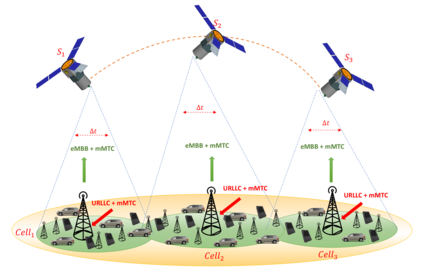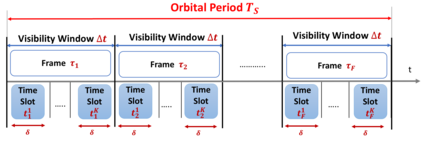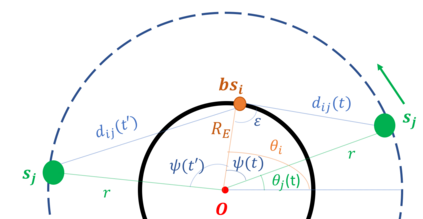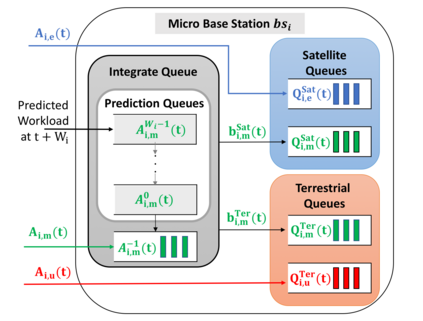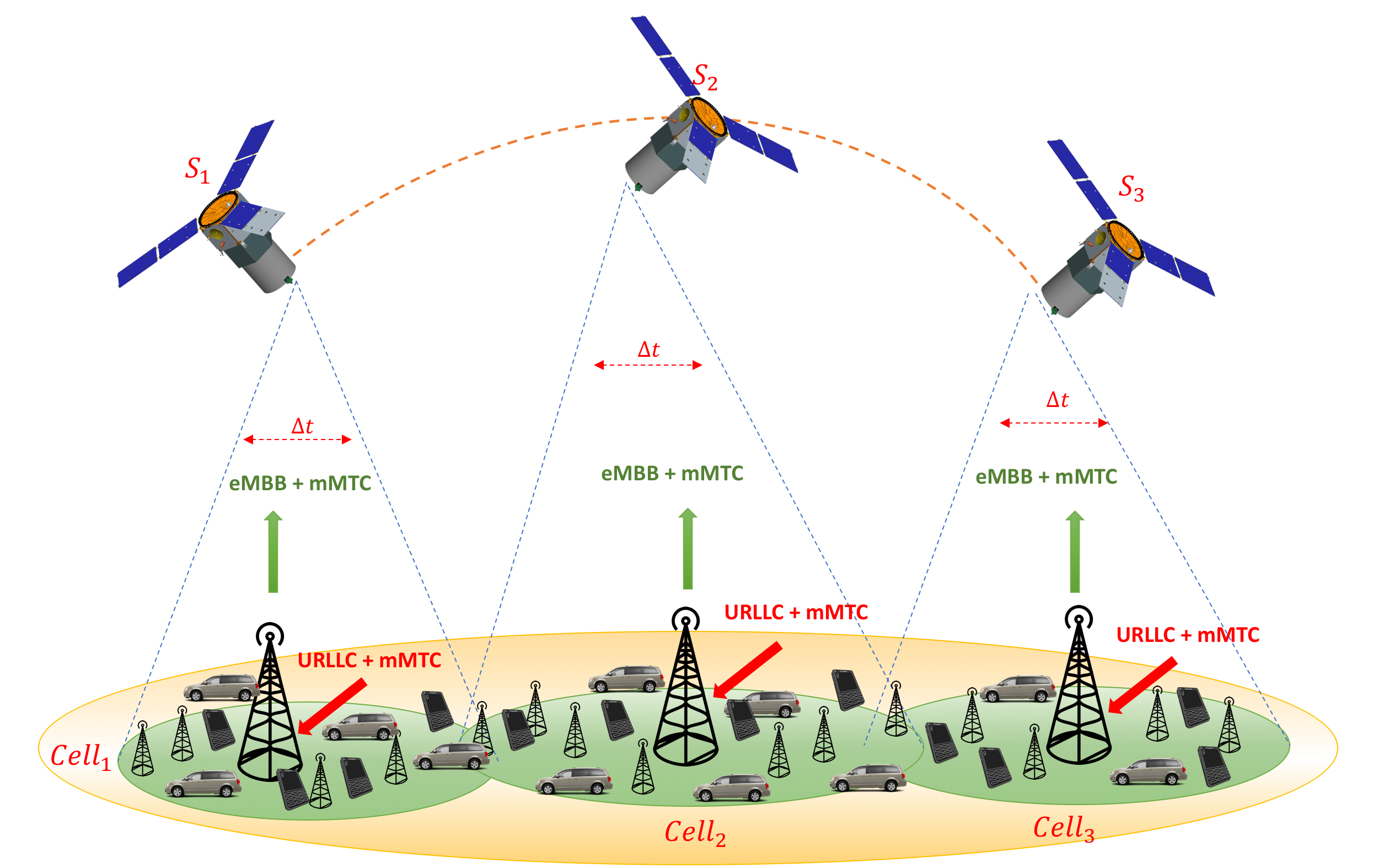The integration between the satellite network and the terrestrial network will play a key role in the upcoming sixth-generation (6G) of mobile cellular networks thanks to the wide coverage and bandwidth offered by satellite networks. To leverage this integration, we propose a proactive traffic offloading scheme in an integrated multi-satellite terrestrial network (IMSTN) that considers the future networks' heterogeneity and predicts their variability. Our proposed offloading scheme hinges on traffic prediction to answer the stringent requirements of data-rate, latency and reliability imposed by heterogeneous and coexisting services and traffic namely enhanced mobile broadband (eMBB), massive machine-type communications (mMTC) and ultra-reliable low latency communication (URLLC). However, the fulfilment of these requirements during offloading in dynamic IMSTN comes at the expense of significant energy consumption and introduces inherently supplementary latency. Therefore, our offloading scheme aims to balance the fundamental trade-offs first between energy consumption and the achievable data-rate and second between energy consumption and latency while meeting the respective needs of the present traffic. Our findings prove the importance of the cooperation between the multi-satellite network and the terrestrial network conditioned by traffic prediction to enhance the performance of IMTSN in terms of latency and energy consumption.
翻译:由于卫星网络提供的广泛覆盖面和带宽通信,卫星网络与地面网络之间的整合将在即将到来的移动蜂窝网络第六代(6G)中发挥关键作用。为了利用这一整合,我们提议在综合多卫星地面网络(IMSTN)中制定一个积极主动的运输卸载计划,考虑未来网络的异质性并预测其变异性。我们提议的卸载计划取决于交通预测,以满足不同和共存的服务与交通,即增强的移动宽带、大规模机型通信和超可恢复性低延迟通信(URLLC)对数据节率、延缓度和可靠性的严格要求。然而,在卸载动态IMSPTN期间满足这些要求,将牺牲大量能源消耗,并引入内在的补充耐用性。因此,我们的卸载计划旨在平衡能源消耗与可实现的数据节率和耐用量与耐用量之间的基本权衡,同时满足当前交通需求。我们的调查结果证明,多卫星通信网和地面网络运行状况的预测,在加强多卫星通信通信和地面网络运行状态方面开展合作的重要性。

